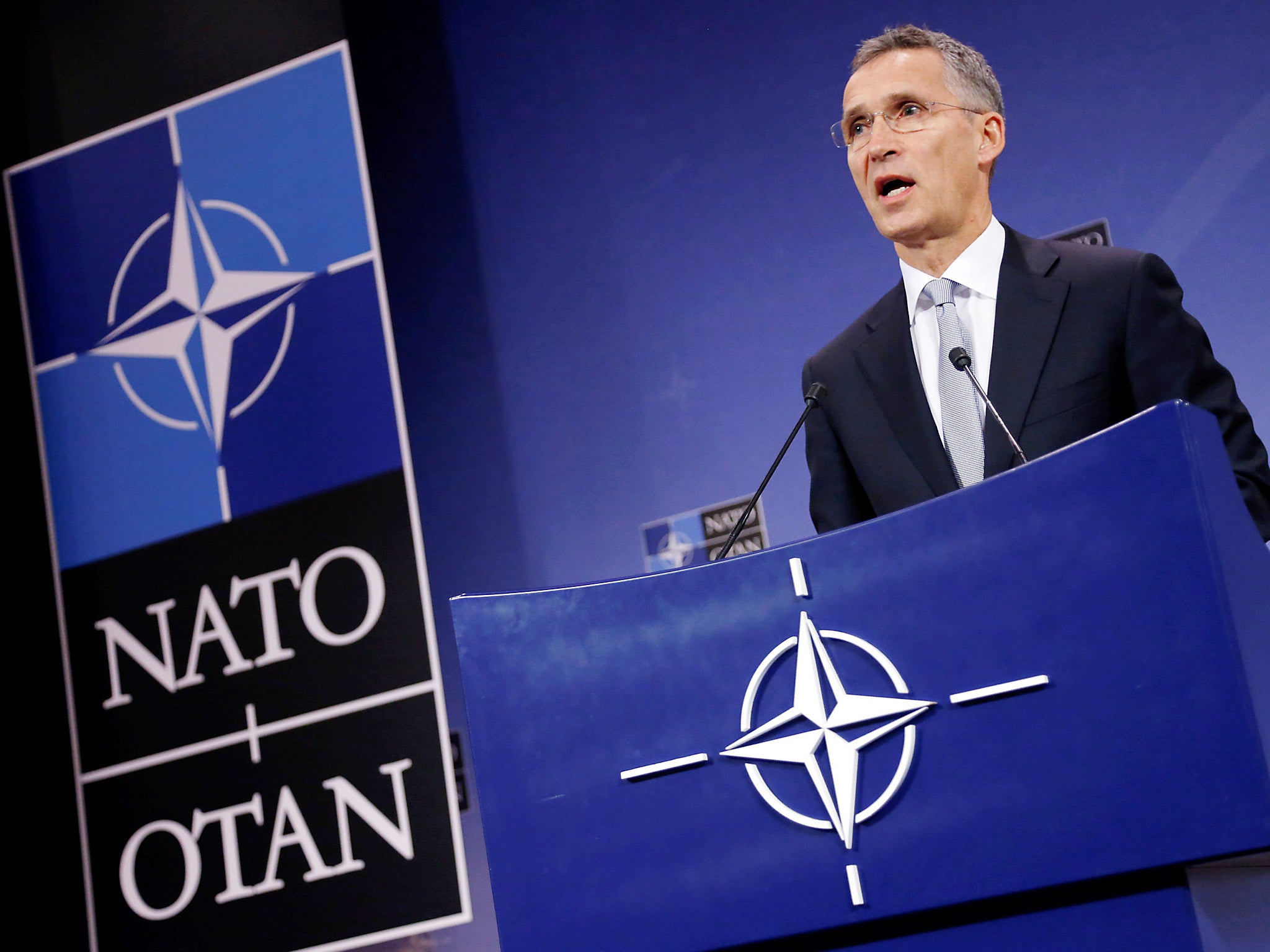Nato prepares to station thousands of troops in Russian border countries
It comes as Spain faces criticism from allies for agreeing to refuel a Russian fleet

Nato is preparing to station some 4,000 troops on the Russian border in its biggest military build-up since the Cold War.
With no end in sight for the current quarrel between Moscow and the West, the military alliance was contacting allies on Wednesday to ask for commitments to send forces to the Baltic states and eastern Poland from early next year.
Russia has been engaged in its own shows of force in recent weeks, deploying nuclear-capable missiles to its Kaliningrad enclave on the Polish border and dispatching a carrier fleet to the eastern Mediterranean - making a tour of European shores on the way.
And its actions already appear to have sowed division among Nato members, after Spain agreed to refuel the Russian fleet at its north African naval base of Ceuta. That’s despite Spain being a signatory of an EU statement condemning Russia’s actions in Syria.
Nato’s response is in part a result of Russia’s annexation of Crimea in 2014, as well as a bid to reassure Europe’s ex-Soviet states who fear Moscow could try a similar tactic again.
Four battle groups will be stationed to Poland, Lithuania, Estonia and Latvia, with forces ranging from armoured infantry to drones.
The US, Germany, Canada and the UK will led the groups, and Nato is looking for support from other allies including France, Italy and Denmark.
NATO Secretary-General Jens Stoltenberg said the commitments would be "a clear demonstration of our transatlantic bond." Diplomats said it would also send a message to Republican presidential nominee Donald Trump, who has complained that European allies do not pay their way in the alliance.
The strategy is part of an emerging new deterrent that could eventually be combined with missile defences, air patrols and defences against cyber attacks.
However, the alliance is still struggling for a similar strategy in the Black Sea region, which Turkish President Tayyip Erdogan has said is becoming a "Russian lake" because of Moscow's military presence there.
Romania, Bulgaria and Turkey are expected to soon come forward with a plan to increase naval and air patrols in the area, as well as a multinational NATO brigade in Romania.
EU leaders met last week to consider fresh sanctions over Russian bombing of civilian areas in Aleppo and NATO's Stoltenberg said he fears the Russian warships heading to the Mediterranean could launch new attacks on the Syrian city.
But even before the break down of the Syrian ceasefire, Russian President Vladimir Putin suspended a treaty with Washington on cleaning up weapons-grade plutonium, signalling he was willing to use nuclear disarmament as a new bargaining chip in disputes with the United States over Ukraine and Syria.
Additional reporting by agencies
Join our commenting forum
Join thought-provoking conversations, follow other Independent readers and see their replies
Comments